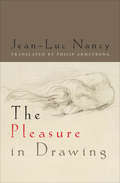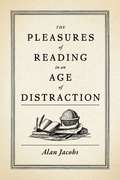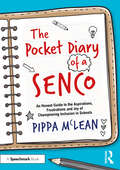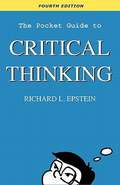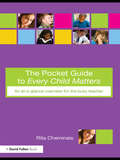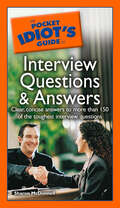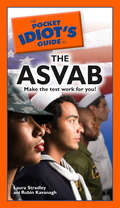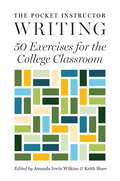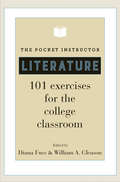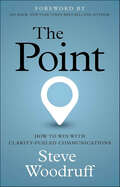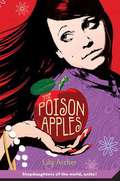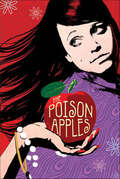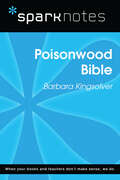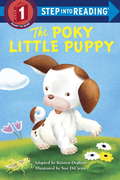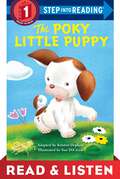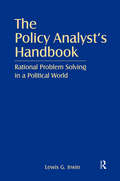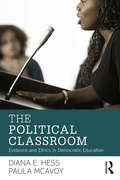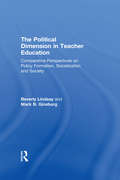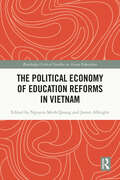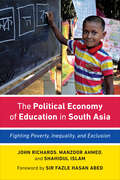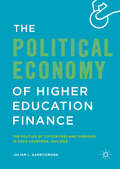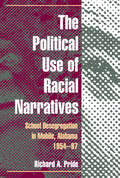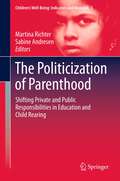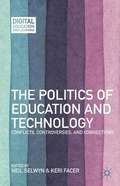- Table View
- List View
The Pleasure in Drawing
by Jean-Luc NancyThe renowned philosopher contemplates the medium of drawing in &“a book full of dazzling insights, imaginative curves and provocative renewals&” (Sarah Clift, University of King&’s College). In 2007, philosopher Jean-Luc Nancy curated an exhibition at the Museum of Fine Arts in Lyon. This book, originally written for that exhibition, explores the interplay between drawing and form—viewing the act of drawing as a formative force. Recalling that the terms &‘drawing&’ and &‘design&’ were once used interchangeably, Nancy notes that drawing designates a design that remains without project, plan, or intention. His argument offers a way of rethinking a number of historical terms (sketch, draft, outline, plan, mark, notation), which includes rethinking drawing in its graphic, filmic, choreographic, poetic, melodic, and rhythmic senses. For Nancy, drawing resists any kind of closure, and therefore never resolves a tension specific to itself. Drawing allows the gesture of a desire that remains in excess of all knowledge to come to appearance. Situating drawing in these terms, Nancy engages a number of texts in which Freud addresses the force of desire in the rapport between aesthetic and sexual pleasure, texts that also turn around questions concerning form in its formation. Between sections of his text, Nancy includes a series of &“sketchbooks&” on drawing, composed of quotations on art from different writers, artists, or philosophers.
The Pleasures of Reading in an Age of Distraction
by Alan JacobsIn recent years, cultural commentators have sounded the alarm about the dire state of reading in America. Americans are not reading enough, they say, or reading the right books, in the right way. In this book, Alan Jacobs argues that, contrary to the doomsayers, reading is alive and well in America. There are millions of devoted readers supporting hundreds of enormous bookstores and online booksellers. Oprah's Book Club is hugely influential, and a recent NEA survey reveals an actual uptick in the reading of literary fiction. Jacobs's interactions with his students and the readers of his own books, however, suggest that many readers lack confidence; they wonder whether they are reading well, with proper focus and attentiveness, with due discretion and discernment. Many have absorbed the puritanical message that reading is, first and foremost, good for you--the intellectual equivalent of eating your Brussels sprouts. For such people, indeed for all readers, Jacobs offers some simple, powerful, and much needed advice: read at whim, read what gives you delight, and do so without shame, whether it be Stephen King or the King James Version of the Bible. In contrast to the more methodical approach of Mortimer Adler's classic How to Read a Book(1940), Jacobs offers an insightful, accessible, and playfully irreverent guide for aspiring readers. Each chapter focuses on one aspect of approaching literary fiction, poetry, or nonfiction, and the book explores everything from the invention of silent reading, reading responsively, rereading, and reading on electronic devices. Invitingly written, with equal measures of wit and erudition,The Pleasures of Reading in an Age of Distraction will appeal to all readers, whether they be novices looking for direction or old hands seeking to recapture the pleasures of reading they first experienced as children.
The Pleasures of Reason in Plato, Aristotle, and the Hellenistic Hedonists
by James WarrenHuman lives are full of pleasures and pains. And humans are creatures that are able to think: to learn, understand, remember and recall, plan and anticipate. Ancient philosophers were interested in both of these facts and, what is more, were interested in how these two facts are related to one another. There appear to be, after all, pleasures and pains associated with learning and inquiring, recollecting and anticipating. We enjoy finding something out. We are pained to discover that a belief we hold is false. We can think back and enjoy or be upset by recalling past events. And we can plan for and enjoy imagining pleasures yet to come. This book is about what Plato, Aristotle, the Epicureans and the Cyrenaics had to say about these relationships between pleasure and reason.
The Pocket Diary of a SENCO: An Honest Guide to the Aspirations, Frustrations and Joys of Championing Inclusion in Schools
by Pippa McLeanThe Pocket Diary of a SENCO spans a typical school year and includes hopeful and often humorous diary entries that share the authentic aspirations, joys, and frustrations of championing inclusion and working in the role of a SENCO. Grounded in real-life experiences and day-to-day practice, Pippa McLean describes the experiences of a SENCO and the reality of SEND provision in school, drawing out the personal characteristics and values that schools can foster to support inclusive practice and nurture positive relationships between children, parents, and colleagues. Diary extracts across the months range from ‘Be ready to hit the road’, ‘Be gentle on yourself’, to ‘Be a culture builder' and ‘Be an advocate'. Each entry is followed by reflective questions and space for the reader to jot down their own thoughts, as well as ‘monthly musings’ to support their own professional development. Written in a truly conversational style, this essential pocket diary captures the reality of SEND provision in schools and will be relatable to many. It is valuable reading for SENCOs, teachers, support staff and trainees who wish to enrich their learning around inclusive practice and engage reflectively within their busy lives.
The Pocket Guide to Critical Thinking (Fourth Edition)
by Richard L. Epstein Alex Raffi Carolyn KernbergerFirst comes clear thinking, then comes clear writing. The extraordinarily clear explanations in the Pocket Guide to Critical Thinking provide the essential skills to reason better-for classwork, for writing, and for use in everyday life. The book employs an abundance of engaging examples from everyday life that illustrate how to analyze arguments and make better decisions. The Pocket Guide is both the perfect supplement for any course that requires critical thinking, from the sciences to the humanities, and a practical aid for self-study or a reference source in writing. This extensively revised fourth edition has over 150 new examples and a new chapter on evaluating risks. Buyers of this book also get free access to hundreds of additional examples and exercises as well as further material for the sciences on the Critical Thinking Web Exchange at the Advanced Reasoning Forum website.
The Pocket Guide to Every Child Matters: An At-a-Glance Overview for the Busy Teacher
by Rita CheminaisThe aim of this pocket guide is to provide an at-a-glance overview and insight into Every Child Matters for busy trainee, newly qualified and experienced teachers, working with pupils in a range of educational settings, who want a quick point of reference in order to know how: the concept, aims and principles of Every Child Matters influences their practice to develop a shared vision and ethos for Every Child Matters Every Child Matters policy informs practice to develop effective teamwork and collaborative partnership working to embed Every Child Matters outcomes in personalised learning to monitor and evaluate the impact of Every Child Matters at classroom level. Pocket Guide to Every Child Matters is an invaluable, good value, user-friendly resource for all busy Children’s Workforce practitioners, working directly with pupils in classrooms, offers practical tips and guidance, effective strategies, models of good practice and signposting to further sources of information. It features step-by-step advice, useful checklists and templates which can be customised to suit the context of a range of primary and secondary phase educational settings.
The Pocket Idiot's Guide to Interview Questions And Answers
by Sharon McDonnell&“When can you start?&” Giving compelling answers to interview questions can make the difference between winning a job and unemployment. The Pocket Idiot&’s Guide® to Interview Questions and Answers will arm you with answers to the 150 toughest interview questions. Whether you read the book cover-to-cover to prepare for an initial interview or uses it as a last-minute reference on the way to a final interview, you will be prepared to offer clear, concise, and thoughtful answers. You&’ll also learn what questions to ask your interviewer to help you figure out if the job is right for you. • Pocket size gives you easy-to-access information to prepare for an interview. • Helps you understand what information interviewers are really trying to uncover with their questions.
The Pocket Idiot's Guide to the ASVAB
by Laura Stradley Robin KavanaghYou know you cannot &“fail&” the Armed Services Vocational Aptitude Battery (ASVAB), but if you&’re planning a career in the military, you&’ll want to prepare before taking these mandatory exams.The Pocket Idiot&’s Guide® to the ASVAB will show you the lay of the land and help you plot a strategy, with explanations for every component of the text (and practice questions for each). You&’ll also receive expert guidance on how each branch of the military uses the scores to determine your future service.
The Pocket Instructor: 50 Exercises for the College Classroom (Skills for Scholars #6)
by Amanda Irwin Wilkins and Keith ShawFifty easy-to-deploy active learning exercises for teaching academic writing in any fieldThe Pocket Instructor: Writing offers fifty practical exercises for teaching students the core elements of successful academic writing. The exercises—created by faculty from a broad range of disciplines and institutions—are organized along the arc of a writing project, from brainstorming and asking analytical questions to drafting, revising, and sharing work with audiences outside traditional academia. They present students with engaging intellectual challenges to work through together, arriving at generalizable lessons that transfer well across the humanities, social sciences, and natural sciences.Students will learn to articulate a thoughtful question, develop a persuasive thesis, analyze complex evidence, and engage responsibly with sources. The Pocket Instructor: Writing offers teachers concrete ideas about how to cultivate habits of radical revision and create a classroom community with an ethos of trust where students learn to give meaningful feedback. Written for both novice and veteran instructors, this essential guide will benefit faculty in any field who hope to improve student writing in their courses.Key features:• Exercises by experienced faculty from a wide range of disciplines and institutions• Step-by-step instructions with instructor insights for each exercise• A &“Writing Lexicon&” for terms such as motive, thesis, analysis, evidence, and method• Guidance for avoiding plagiarism• Index and cross-references to aid in course planning
The Pocket Instructor: Literature
by Diana Fuss William A. GleasonThis is the first comprehensive collection of hands-on, active learning exercises for the college literature classroom, offering ideas and inspiration for new and veteran teachers alike. These 101 surefire lesson plans present creative and interactive activities to get all your students talking and learning, from the first class to final review. Whether you are teaching majors or nonmajors, genres or periods, canonical or noncanonical literature, medieval verse or the graphic novel, this volume provides practical and flexible exercises for creating memorable learning experiences. Help students learn more and retain that knowledge longer by teaching them how to question, debate, annotate, imitate, write, draw, map, stage, or perform. These user-friendly exercises feature clear and concise step-by-step instructions, and each exercise is followed by helpful teaching tips and descriptions of the exercise in action. All encourage collaborative learning and many are adaptable to different class sizes or course levels. A collection of successful approaches for teaching fiction, poetry, and drama and their historical, cultural, and literary contexts, this indispensable book showcases the tried and true alongside the fresh and innovative.101 creative classroom exercises for teaching literatureExercises contributed by experienced teachers at a wide range of colleges and universitiesStep-by-step instructions and teaching tips for each exerciseExtensive introduction on the benefits of bringing active learning to the literature classroomCross-references for finding further exercises and to aid course planningIndex of literary authors, works, and related topics
The Point: How to Win with Clarity-Fueled Communications
by Steve WoodruffIs it possible to grab an audience’s attention in this noisy, confusing world? According to Steven Woodruff, the solution can be summed up in a word: clarity.Clarity-fueled communications is the practice of using the fewest words to make the biggest impact. The Point unveils how the overloaded human brain wants information packaged, and how to craft brain-friendly messages that break through the noise.From email to sales pitches, from workshops to resumes, Steven Woodruff’s Clarity Fuel Formula is the universal recipe for communications success. The Point includes four simple actions and eight compelling shortcuts that can be used by anyone to get to the point and get others on the same page.
The Poison Apples
by Lily ArcherAt an elite Massachusetts boarding school, three fifteen-year-old girls of very different backgrounds discover a common bond and form a club to plot revenge against their evil stepmothers.
The Poison Apples
by Lily ArcherWe all know the stories of Cinderella, Snow White, and Rapunzel. But have you ever heard of Alice Bingley-Beckerman, Reena Paruchuri, or Molly Miller? Of course you haven't. Not yet. What these girls have in common with their fairy tale sisters is this: they are the stepdaughters of three very evil stepmothers. And they're not happy about it. They think they are alone in their unhappiness until they arrive at Putnam Mount McKinsey, a posh boarding school located in lovely rural Massachusetts. Here is where they will plot their revenge. But first they have to meet.In her first novel, Lily Archer tells a knowing, wickedly funny story about how friendship just may turn out to be more happily-ever-after than family.
The Poisonwood Bible (SparkNotes Literature Guide Series)
by SparkNotesThe Poisonwood Bible (SparkNotes Literature Guide) by Barbara Kingsolver Making the reading experience fun! Created by Harvard students for students everywhere, SparkNotes is a new breed of study guide: smarter, better, faster.Geared to what today's students need to know, SparkNotes provides:*Chapter-by-chapter analysis *Explanations of key themes, motifs, and symbols *A review quiz and essay topicsLively and accessible, these guides are perfect for late-night studying and writing papers
The Poky Little Puppy Step into Reading (Step into Reading)
by Kristen L. DepkenThe Poky Little Puppy stars in his first Step into Reading book! This Step 1 Step into Reading title has been adapted from the original Little Golden Book story The Poky Little Puppy for children just learning to read. Freshly illustrated in the style of the original book, this simple, sweet story about a familiar puppy and his roly-poly, tumble-bumble adventures will inspire confidence in the newest readers. Step 1 Readers feature big type and easy words for children who know the alphabet and are eager to begin reading. Rhyme and rhythmic text paired with picture clues help children decode the story.
The Poky Little Puppy Step into Reading: Read & Listen Edition (Step into Reading)
by Kristen L. DepkenThe Poky Little Puppy stars in his first Step into Reading book! This Step 1 Step into Reading title has been adapted from the original Little Golden Book story The Poky Little Puppy for children just learning to read. Freshly illustrated in the style of the original book, this simple, sweet story about a familiar puppy and his roly-poly, tumble-bumble adventures will inspire confidence in the newest readers. Step 1 Readers feature big type and easy words for children who know the alphabet and are eager to begin reading. Rhyme and rhythmic text paired with picture clues help children decode the story.This Read & Listen Edition contains audio narration.
The Policy Analyst's Handbook: Rational Problem Solving in a Political World
by Lewis G. IrwinThis rigorous but very accessible guide to the main concepts and techniques of policy analysis is intended for students and in-service professionals who want to become more efficient and effective in their work. The book equips readers with a structured and disciplined step-by-step approach to decision making, defining issues and applying the powerful techniques of policy analysis - always in the context of uncertainty and limited discretion. Each chapter concludes with notes and a list of supplementary sources for further reading.
The Political Classroom: Evidence and Ethics in Democratic Education (Critical Social Thought)
by Diana E. Hess Paula McAvoyWINNER 2016 Grawemeyer Award in Education Helping students develop their ability to deliberate political questions is an essential component of democratic education, but introducing political issues into the classroom is pedagogically challenging and raises ethical dilemmas for teachers. Diana E. Hess and Paula McAvoy argue that teachers will make better professional judgments about these issues if they aim toward creating "political classrooms," which engage students in deliberations about questions that ask, "How should we live together?" Based on the findings from a large, mixed-method study about discussions of political issues within high school classrooms, The Political Classroom presents in-depth and engaging cases of teacher practice. Paying particular attention to how political polarization and social inequality affect classroom dynamics, Hess and McAvoy promote a coherent plan for providing students with a nonpartisan political education and for improving the quality of classroom deliberations.
The Political Dimension In Teacher Education: Comparative Perspectives On Policy Formation, Socialization And Society (Wisconsin Series Of Teacher Education Ser. #No.5)
by Beverly Lindsay Mark B. GinsburgFirst Published in 1995. Routledge is an imprint of Taylor & Francis, an informa company.
The Political Economy of Education Reforms in Vietnam (Routledge Critical Studies in Asian Education)
by Nguyen Minh QuangThis book, drawing on a political economic perspective of education development, is a comprehensive account of the question "why some education systems flourish while others falter." It provides a state-of-the-art review of the Vietnamese way of education development, figuring out the pitfalls, challenges and opportunities of neoliberal reform. It also sheds new light on the rise of neoliberal capitalism in contemporary Vietnam as the country intensifies its market-oriented economic transition. Starting from educational development concerns, this book differentiates the growth and development concepts in education. While "growth with limited development" is well reflected in many developing education systems, the Vietnamese experience of education development stands to provide readers with unique insights about education in developing economies, especially in understanding how a socialist-oriented education system is struggling to thrive in the times of neoliberal capitalism. Authored by scholars specialising in Vietnamese education and politics, the chapters address key issues pertaining to the political economy of education reform in Vietnam and the government’s enduring efforts to drive education toward international standards through its costly market-infused education reforms. This book will appeal to postgraduate students, educators, educational policy-makers and scholars interested in Vietnamese studies, Vietnam education reforms, education governance, education for sustainability, internationalisation of education and the politics of education reforms.
The Political Economy of Education in South Asia: Fighting Poverty, Inequality, and Exclusion
by Md. Shahidul Islam John Richards Manzoor AhmedWith the exception of Sri Lanka, South Asian countries have not achieved quality basic education – an essential measure for escaping poverty, inequality, and social exclusion. In The Political Economy of Education in South Asia, John Richards, Manzoor Ahmed, and Shahidul Islam emphasize the importance of a dynamic system for education policy. The Political Economy of Education in South Asia documents the weak core competency (reading and math) outcomes in government primary schools in India, Pakistan, Bangladesh, and Nepal, and the consequent rapid growth of non-government schools over the last two decades. It compares the training, hiring, and management of teachers in South Asian schools to successful national systems ranging from Singapore to Finland. Discussing reform options, it makes the case public good and public priorities are better served when both public and non-government providers come under a strong public policy and accountability framework. The Political Economy of Education in South Asia draws on the authors' broad engagement in education research and practice in South Asia, as well as analysis by prominent professors of education and NGO leaders, to place basic education in a broad context and make the case that universal literacy and numeracy are necessary foundations for economic growth.
The Political Economy of Higher Education Finance
by Julian L. GarritzmannThis book analyzes the political economy of higher education finance across a range of OECD countries, exploring why some students pay extortionate tuition fees whilst for others their education is free. What are the redistributional consequences of these different tuition-subsidy systems? Analysing the variety of existing systems, Garritzmann shows that across the advanced democracies "Four Worlds of Student Finance" exist. Historically, however, all countries' higher education systems looked very much alike in the 1940s. The book develops a theoretical model, the Time-Sensitive Partisan Theory, to explain why countries have evolved from a similar historical starting point to today's very distinct Four Worlds. The empirical analyses combine a wide variety of qualitative and quantitative evidence, studying higher education policies in all advanced democracies from 1945-2015.
The Political Use of Racial Narratives: School Desegregation in Mobile, Alabama, 1954-97
by Richard A. PrideArguing that politics is essentially a contest for meaning and that telling a story is an elemental political act, Richard A. Pride lays bare the history of school desegregation in Mobile, Alabama, to demonstrate the power of narrative in cultural and political change. This book describes the public, personal, and meta-narratives of racial inequality that have competed for dominance in Mobile. Pride begins with a white liberal's quest to desegregate the city's public schools in 1955 and traces which narratives--those of biological inferiority, white oppression, the behavior and values of blacks, and others--came to influence public policy and opinion over four decades. Drawing on contemporaneous sources, he reconstructs the stories of demonstrations, civic forums, court cases, and school board meetings as citizens of Mobile would have experienced them, inviting readers to trace the story of desegregation in Mobile through the voices of politicians, protestors, and journalists and to determine which narratives were indeed most powerful. Exploring who benefits and who pays when different narratives are accepted as true, Pride offers a step-by-step account of how Mobile's culture changed each time a new and more forceful narrative was used to justify inequality. More than a retelling of Mobile's story of desegregation, The Political Use of Racial Narratives promotes the value of rhetorical and narrative analysis in the social sciences and history.
The Politicization of Parenthood
by Sabine Andresen Martina RichterCurrently, families are being subjected to increasing public attention. Interest is focussing on their potential strengths and weaknesses in determining how well children do at school. Alongside such human-development oriented expectations, families are also becoming a focus of attention as a resource for human capital in times of economic crises and criticism of the welfare state. In many European countries, parents and children are at the forefront of the welfare state and socio-educational activities in current programs and policies. The current transformation processes in the welfare state are making the relationship between families and the state more dynamic in general, and they are structuring the discourses on the childrearing, education, and child care services in the fields of both public and private responsibility. The introduction of all-day schooling in Germany also has to be viewed in this context. This is gradually changing the traditional half-day structure of German schools and shifting the borders of public and private responsibility on the levels of education, child care, and childrearing institutions. The attention given to parental childrearing and educational responsibility within the context of current national and international debates clearly underlines the fact that issues in private life are increasingly entering the public discourse and becoming subject to attempts at socio-political control. This raises the assumption of an increasing politicization of parenthood in the (post) welfare state that is focusing more and more attention on the structural conditions of gainful employment and child care as well as on the current relations between the genders. This context particularly emphasizes the time and care regimes that decisively determine the practices in daily family life and the utilization of all-day education settings.
The Politics Of Education And Technology
by Neil Selwyn Keri FacerThis book examines the struggles over technology's use in education, digging into what the purpose of education is, how we should achieve it, who the stakeholders are, and whose voices win out. Drawing on theoretical and empirical work, it lays bare the messy realities of technology use in education and their implications for contemporary society.
